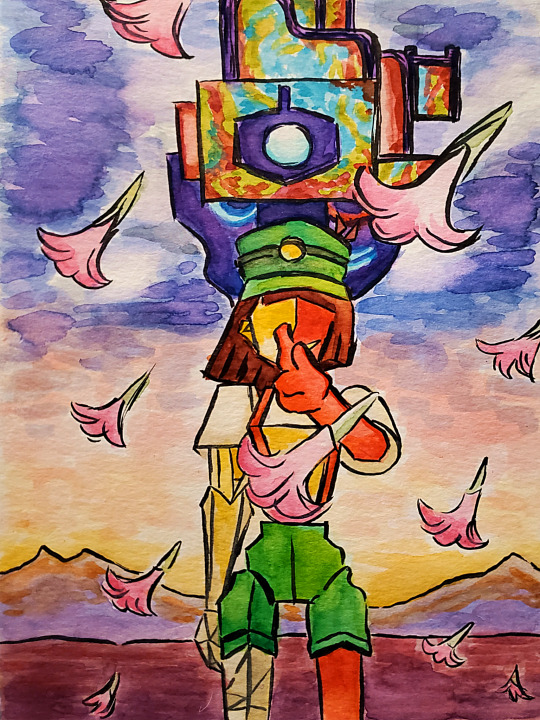#ffe
Text
Is it too much to tell the world that...

"I want to dream?"
1K notes
·
View notes
Text

Who would want locked up like this and just funnel fed all day until you pushed the suits limits?
#growing#feedee belly#feed me#feedee encouragement#get me fatter#make me fat#ffe#belly expansion#greedy piggy#feederism kink#gaining on purpose#fatty#fat body positivity#fatboy#fat belly#fatass#growing bigger#funnel feeding#getting softer#what have i become#what have i fucking done
2K notes
·
View notes
Text
Avendell's Draco.
That's it.
That's the post.
#draco malfoy and hermione granger#dramione#draco malfoy#hermione granger#avendell#manacled#senlinyu#high reeve#fanfiction#ffe#ffs
156 notes
·
View notes
Text




photos taken by @imlosingmytasteforthenightlife at father john misty's very first show on august 31, 2011
#father john misty#fjm#josh tillman#2011#ffe#if you zoom in on one of the dollars it says 'folk bucks'
313 notes
·
View notes
Text
High Fantasy isekai AU picture book for @goesquiet FFE prompt
on AO3
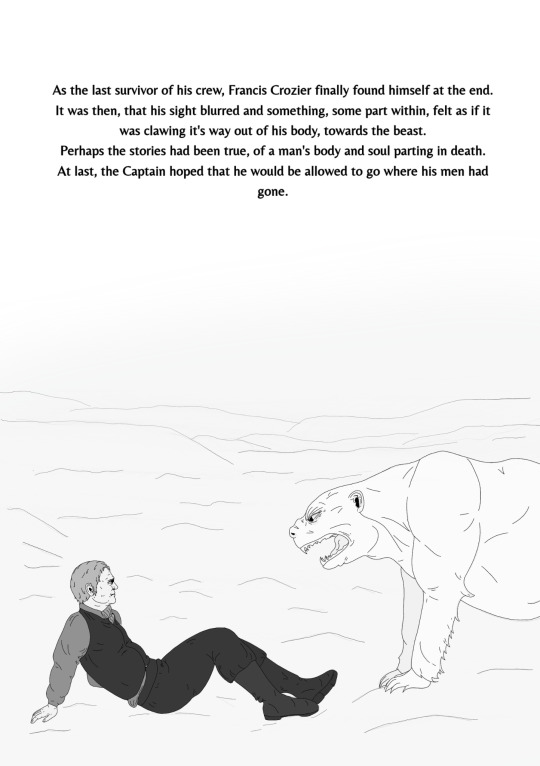
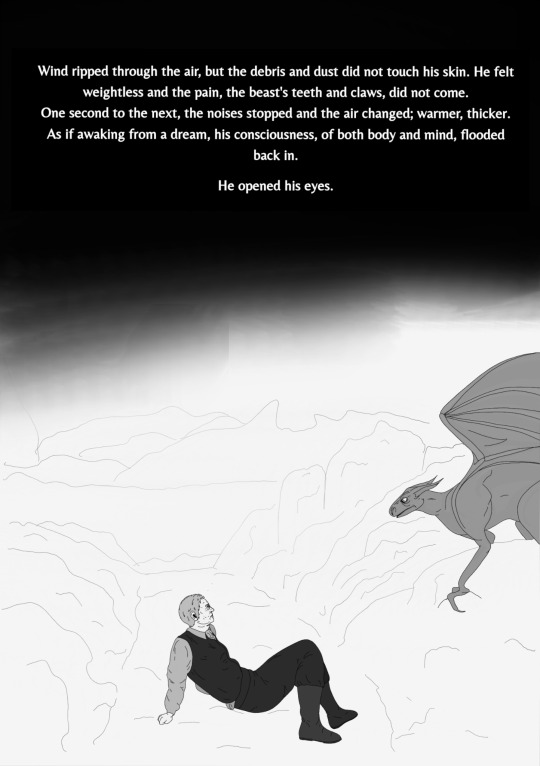
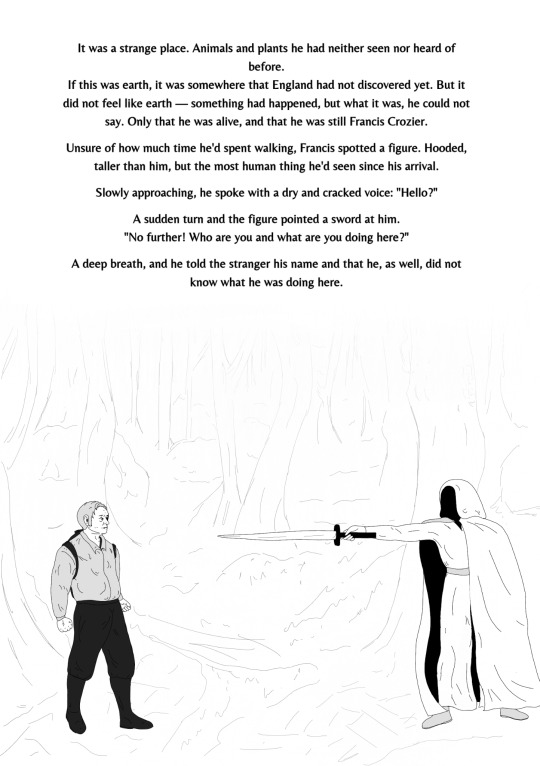
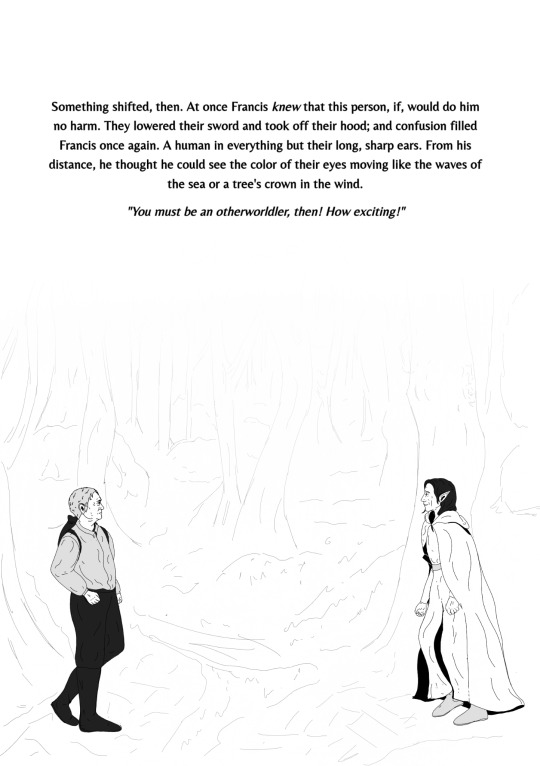





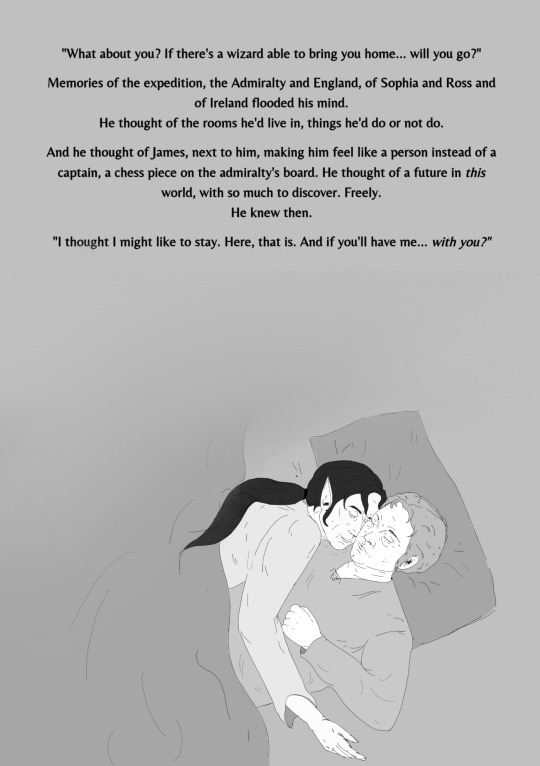
#fitzier#ffe#fall fitzier exchange 2023#james fitzjames#francis crozier#the terror fanart#terrorposting#nickdrawing#comic art#picture book#fan art#fanart#high fantasy au#nigesakis' fitzier aus
10 notes
·
View notes
Text
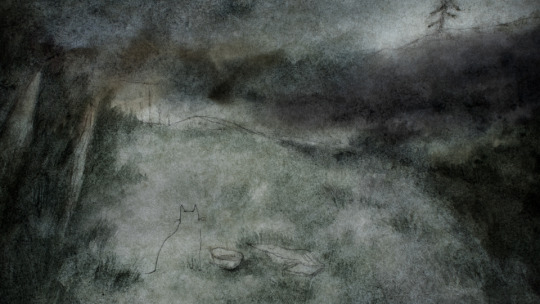

Etape de l'animation terminée! pour Le Chat, le Renard, et le Loup
(à présent, travail du son et des ambiances)
(2) Photo du set up : Banc-titre sur table lumineuse pour les décors en peinture. L'animation est faite sur papier, éclairée par les deux lampes de chaque côté
11 notes
·
View notes
Text
The North Wind and the Sun
Hello! This is my translation of The North Wind and the Sun into my conlang ‘Arkusëbhad‘, or Western Orcish. ‘Arkusëbhad‘ is a primarily head final language with case marking, polypersonal agreement, and animacy-based split ergativity. Phonologically it has a still-productive consonant mutation rule that turns intervocalic stops into fricatives, some pharyngeals and ejectives, and a history of reducing and deleting vowels adjacent to the syllable with primary stress. Here is the original, the translation, the IPA, and then a semi-literal translation back into English. Below the cut is a sentence by sentence breakdown of the translation, with vocab and grammatical notes.
English Original
The North Wind and the Sun were disputing which was the stronger, when a traveler came along wrapped in a warm cloak. They agreed that the one who first succeeded in making the traveler take his cloak off should be considered stronger than the other. Then the North Wind blew as hard as he could, but the more he blew the more closely did the traveler fold his cloak around him; and at last the North Wind gave up the attempt. Then the Sun shined out warmly, and immediately the traveler took off his cloak. And so the North Wind was obliged to confess that the Sun was the stronger of the two.
‘Arkusëbhad‘
Ba Jek’m sâ bha Mêl têthengkëlignda hil dakhal‘ buhl bahë’mubmu gwî, hibn gëlbebn lejë‘ark buhl hebg bahi’mëbhunda bhëlîmu thêkr ketpn. Tênësukm ba dhan hil hi’ hebg bahikkwëkhût bâs leja‘ërkûs ba dakhal‘ buhl bahë’mup’e ghëlsês dannz. Hi’bn gëlbebn ba Jek’m bëhûsmu keskr bakr buhlte, jîng bask leja‘ërkusk keskr bakr hûsëlâd‘ hi’bangûbhëkmût bakr hëbhigbn bakr sinegbn lûghe dhâkhëlâbn‘ kwilëlâbn‘, sâ hi’bn jënlâbn‘ ba Jek’m hi’ swarl‘ bahë’jenm. Hi’bn gëlbebn ba Mêl bathëresm pëlîd, sâ bha lejë‘ark bakr hebg bahëkkûmu bhakr sineggz sesëlâd‘. Hi’ këdzerl‘ ba Jek’m behemwatk ba Mêl dakhal‘ buhl bahë’mubmu hikks sîs.
‘Arkusëbhad‘ IPA
[bɑ ˈjɛ.kʼm̩ sɑː βɑ ˈmɛːl ˌtɛː.θɛŋ.kəˈli.gn̩.dɑ hil dɑ.ˈxɑlˤ buɬ ˌbɑ.həʔ.ˈmub.mu gwiː, ˈhiʔ.bn̩ gəl.ˈbɛ.bn̩ ˌlɛ.jəˈʕɑrk buɬ hɛbg ˌbɑ.hiʔ.məˈβun.dɑ βə.ˈliː.mu ˈβɑ.kr̩ ˈkɛt.pn̩. — ˌtɛː.nə.ˈsu.km̩ bɑ ˈðɑn hil hiʔ ˈhɛbg ˌbɑ.hik.kwə.ˈxuːt bɑːs ˌlɛ.jɑ.ʕərˈkuːs bɑ dɑˈxɑlˤ ˈbuɬ ˌbɑ.həʔ.mu.pʼɛ ɣəlˈsɛːs dɑnːz — ˈhiʔ.bn̩ gəl.ˈbɛ.bn̩ bɑ ˈjɛ.kʼm̩ bə.ˈhuːs.mu ˈkɛs.kr̩ ˈbɑ.kr̩ ˈbuɬ.tɛ, jiːŋ ˈbɑsk ˌlɛ.jɑ.ʕərˈkusk ˈkɛs.kr̩ ˈbɑ.kr̩ ˌhuː.sə.ˈlɑːdˤ ˌhiʔ.bɑ.ˌŋuː.βək.ˈmuːt ˈbɑ.kr̩ hə.ˈβig.bn ˈbɑ.kr̩ si.ˈnɛg.bn̩ ˈluːɣɛ ˌðɑː.xə.ˈlɑː.bˤn̩ˤ ˌkwi.lə.ˈlɑː.bʻn̩, sɑː ˈhiʔ.bn̩ jən.ˈlɑː.bʻn̩ bɑ ˈjɛ.kʼm̩ hiʔ swɑ.rˤl̩̩ˤ ˌbɑ.həʔ.ˈjɛ.nm̩ — ˈhiʔ.bn̩ gəl.ˈbɛ.bn̩ bɑ ˈmɛːl ˌbɑ.θə.ˈrɛ.sm̩ pə.ˈliːd, sɑː βɑ ˌlɛ.jəˈʕɑrk ˈbɑ.kr̩ ˈhɛbg ˌbɑ.hək.ˈkuː.mu ˈβɑ.kr̩ si.ˈnɛggz ˌsɛ.sə.ˈlɑːdˤ — hiʔ kəd.ˈzɛ.rˤl̩ˤ bɑ ˈjɛ.kʼm̩ ˌbɛ.hɛm.ˈwɑtk bɑ mɛːl dɑ.ˈxɑlˤ ˈbuɬ ˌbɑ.həʔ.ˈmub.mu hikks ˈsiːs]
Semi-Literal Translation Back to English
The Cold Wind and the Sun were fighting each other for who had winning strength, at this point a traveler had a strong cloak walked to their side. They agreed that the one what made the cloak be taken from the traveler would have winning strength from the second one. At that point the Cold Wind blew with all her strength, but all her blowing made the traveler wrap her cloak around her body more closely, and at the finishing the Cold Wind finished striving. At that point the Sun shined with warmth, and the traveler took her cloak from her body with speed. Following this the Cold Wind was made to say the Sun had more strength of the two.
Some quick notes before the sentence breakdowns:
- Animate nouns are listed with the nominative and accusative forms (bare, then -sk).
- Inanimate nouns are listed with the absolutive and ergative forms (bare, then -d or -t).
- Verbs are listed with two forms. The first is bare, uninflected form, and the second is the stem before vowel reduction.
- In Proto-Orcish stress fell on the third mora from the end, and suffixes pulled the stress back. Later sound changes deleted the post-tonic vowel and reduced the pre-tonic vowel to schwa, so every time you conjugate a verb you have to get the stress pattern right.
- I haven’t marked the intervocalic lenition of stops to fricatives, so I’m telling you about it now (p b t d k g ʔ ⟨’⟩→ ɸ ⟨ph⟩ β ⟨bh⟩ θ⟨ th⟩ ð ⟨dh⟩ x ⟨kh⟩ ɣ ⟨gh⟩ h)
- ‘Arkusëbhad‘ doesn't have a grammatical masc/fem distinction, so I've translated the 3rd person singular animate pronoun as she/her, just for fun.
Sentence 1
The North Wind and the Sun were disputing which was the stronger, when a traveler came along wrapped in a warm cloak.
The Cold Wind and the Sun were fighting each other for who had winning strength, at this point a traveler had a strong cloak walked to their side
Ba Jek’m sâ bha Mêl têthengkëlignda hil dakhal‘ buhl bahë’mubmu gwî, hi’bn gëlbebn lejë‘ark buhl hebg bahi’mëbhunda bhëlîmu thêkr ketpn.
Vocab:
’ilg, -’ilig- [ˈʔilg, ʔilig] *qilig - v. trans fight
ba, bask [bɑ, bɑsk] *bo - pron/def. art. 3rd sing. anim.
buhl, buhlte [ˈbuɬ, ˈbuɬtɛ] *buhlo - n. inam strength
dâk, dâkhu [dɑːk, dɑːxu] *dawku - v. trans/intrans. win, defeat
dakhal‘ [dɑˈxɑlʻ] *dawku-laʕ, verbal noun of dâk, lit. “win-thing”
gulb, gulbde [ˈgulb, ˈgulbdɛ] *gulbe - n. inam. point, stab mark. From the verb *gulbe “to stab”, used as a noun to “a stab mark, a point”, metaphorically extended to spatial and then temporal locations.
gwî [gwiː] *gujhu - post. for
hebg, hëbhigd [ˈhɛbg, həˈβigd] *xabig - n. inam. cloak, cloth, fabric
hi’, hi’t [hit, hiʔt] *fiq - pron/def. art. 3rd sing. inanim.
hil [hil] *xilu - pron. who/what etc.
Jek’m, Ujëkamsk [ˈjɛkʼm, ˌujəˈkɑmsk] *hujok-ʔom - n. anim Cold Wind, from *hujok “cold” and *ʔom “wind”. This is the name of a character in Orcish myths and stories, a personification of the cold wind that is perpetually blowing towards the sun.
ket, kett [kɛt, kɛtː] *kat - n. intrans side, post. near
lejë‘ark, leja‘ërkusk [ˌlɛjəˈʕɑrk, ˌlɛjɑʕərˈkusk] *lejo-‘arku - n. anim. traveler, walker. From *lejo “go, walk” and *ʕarku “person”.
lî, -leje- [ˈliː, lɛjɛ] *lejo - v. intrans. go, walk
mê, mêd [mɛː, mɛːd] *maj - pron/def. art. 3rd plur. inanim.
Mêl, Malsk [ˈmɛːl, ˈmɑlsk] *maʔol - n. anim. Sun. The Sun is animate because it moves around, and is generally important.
mub, -mubhu- [ˈmub, muβu] *mubu - v. trans. have. This verb also gives rise to the perfect suffix -mu and the imperfect suffix -nda.
sâ [sɑː] *soh - conj. and
tê, têsk [tɛː, tɛːsk] *teʔ - pron/def. art. 3rd plur. anim.
Grammatical Constructions:
- “were fighting each other” têthengkëlignda
This uses the reflexive marker in the second argument slot, the reflexive marker (*ten) comes from *tenʕu “head”. Also the original *q becomes /k/ instead of /ʔ/ after the velar nasal (I think it makes sense).
- “winning strength” dakhal‘ buhl
Comparatives are made with the verbal noun of “winning, defeating”. Also I decided on how to make verbal nouns now, so I’m pretty proud of that.
- “at this point” hi’bn gëlbebn
This phrase uses gulb in the dative to mean “at this point”.
- “a traveler had a strong cloak walked” lejë‘ark buhl hebg bahi’mëbhunda bhëlîmu
This could be phrased with some kind of verbal noun usage or just an adpositional phrase, but I like this kind of poetic structure where the subject gets two verb phrases in juxtaposition. Maybe it’s not a common feature in speech, but I like it here.
- “to their side” thêkr ketpn
This is more like “walked near them”, as “side” is used metaphorically to mean to place close to them.
Sentence 3
Then the North Wind blew as hard as he could, but the more he blew the more closely did the traveler fold his cloak around him; and at last the North Wind gave up the attempt.
At that point the Cold Wind blew with all her strength, but all her blowing made the traveler wrap her cloak around her body more closely, and at the finishing the Cold Wind finished striving.
Hi’bn gëlbebn ba Jek’m bëhûsmu keskr bakr buhlte, jîng bask leja‘ërkusk keskr bakr hûsëlâd‘ hi’bangûbhëkmût bakr hëbhigbn bakr sinegbn lûghe dhâkhëlâbn‘ kwilëlâbn‘, sâ hi’bn jënlâbn‘ ba Jek’m hi’ swarl‘ bahë’jenm.
Vocab:
hûs, hûse [ˈhuːs, husɛ] *xuswa - v. intrans. blow
jen [ˈjɛn] *jan - v. trans finish. This verb has irregular interactions with the closest pronoun prefix when the verb stem is in the post-tonic position.
janl‘, jënlâbn‘ [ˈjɑnˤlˤ, jə.ˈlɑ.bˤn̩ˤ] *jan-laʕ - verbal noun of jen, lit. “finish-thing”
jîng [ˈjiːŋ] *ju-weŋ - conj. but. This is from some small compound, but I haven’t decided on the specific meanings of the original. Maybe “outside of”? If it doesn’t work I can always get a different contrastive conjunction.
kes [ˈkɛs] *kes adj. all
kwil, -kwile- [ˈkwil, kwilɛ] *kujla - v. trans close, shut
lûghe [ˈluːɣɛ] *lowaga, post. around, from a verb “to circle, to loop”
ngûb, ngûbhik [ˈŋuːbg, ŋuːβik] *ŋuwbik - v. trans. wrap, twist, tie, fasten
sîngg, sinegd [ˈsiːŋg, siˈnɛgd] *sejneg - n. inam. body
suhr, -swer- [ˈsur̥, ˈswɛr] *suhar - v. intrans strive, exert effort
Grammatical Constructions:
- “with all her strength” keskr bakr buhlte
This uses the instrumental case, which also doubles as the ergative case. Then “her” bakr is in the genitive to show possession, and “all” keskr is in the genitive to agree with “her”.
- “all her blowing made the traveler wrap her cloak…” jîng bask leja‘ërkusk keskr bakr hûsëlâd‘ hi’bangûbhëkmût bakr hëbhigbn...
Lots of grammar here. As a causative construction, “all her blowing” is the subject in the ergative, “the traveler” is the direct object in the accusative, and “her cloak” is the indirect object in the dative. The object “the traveler” gets fronted, since an animate argument doesn’t like to come after an inanimate one.
- “around her body” bakr sinegbn lûghe
Here the postposition “around” assigns the dative case to its noun.
- “more closely” dâkhëlâbn‘ kwilëlâbn‘
This is literally something like “to the winning shutting”. I guess you can just kinda keep stringing dative clauses on after the verb.
- “at last” hi’bn jënlâbn
Verbal nouns are super useful, this is “the finish-thing” in the dative.
“the Cold Wind finished striving” ba Jek’m hi’ swarl‘ bahë’jenm
Once again, verbal nouns are super useful. This is just a simple subject - object - verb construction, but it’s very nice to be able to just slap some morphology on a verb and slide it into the object position.
Sentence 2
They agreed that the one who first succeeded in making the traveler take his cloak off should be considered stronger than the other.
They agreed that the one what made the cloak be taken from the traveler would have winning strength from the second one.
Tênësukm ba dhan hil hi’ hebg behikkwëkhût bâs leja‘ërkûs ba dakhal‘ buhl behë’mup’e ghëlsês dannz.
Vocab:
dan, dand [ˈdɑn, ˈdɑnd] *don - num. one. Also is used for the indefinite pronoun and article.
gulsi, gëlsîd [ˈgulsi, gəlˈsiːd] *gul-sij - det. second, other, not the one previously referred to. From *gul, a shortening of *gulde “stab/point”, and *sij “two”. As seen before, *gulde was used as sort of a general locational noun. Here it acts as a prefix to the cardinal numerals to form the ordinals.
kû, -kwe- [kuː, kwɛ] *kuʔa - v. trans. take, snatch, grab. Takes the form -k’e when in the post-tonic position. Gives rise to the passive marker -ku.
nesk, -nesuk- [ˈnɛsk, nɛsuk] *nasuk - v. intrans. agree, sit. Originally meaning “to sit”, it gained a meaning of “to agree, to come to a decision together” from the orcish tradition of sitting down in a common space to settle disputes and other conflicts.
Grammatical Constructions:
- “the one who made it be taken” behikkwëkhût
This is a simultaneous passive and causative construction. First “take” is passivized, removing the agent and promoting the patient to the subject position (in the absolutive case). Then it is causativized, adding a new agent (in the nominative) and demoting the original patient back down. Now the patient is in the accusative, but it’s still unmarked, so that’s not a big change.
- “she would have” ba … bahë’mup’e
The verb here uses the subjunctive mood, which evolved from the original future tense in the Western Orcish branch. This construction also uses the optional resumptive pronoun ba, just to remind the listener who is actually the subject of the upcoming verb.
- “from the other one” gëlsês dannz
The ablative case is used here in conjunction with the “winning strength” construction to build the comparative.
Sentence 3
Then the North Wind blew as hard as he could, but the more he blew the more closely did the traveler fold his cloak around him; and at last the North Wind gave up the attempt.
At that point the Cold Wind blew with all her strength, but all her blowing made the traveler wrap her cloak around her body more closely, and at the finishing the Cold Wind finished striving.
Hi’bn gëlbebn ba Jek’m bëhûsmu keskr bakr buhlte, jîng bask leja‘ërkusk keskr bakr hûsëlâd‘ hi’bangûbhëkmût bakr hëbhigbn bakr sinegbn lûghe dhâkhëlâbn‘ kwilëlâbn‘, sâ hi’bn jënlâbn‘ ba Jek’m hi’ swarl‘ bahë’jenm.
Vocab:
hûs, hûse [ˈhuːs, husɛ] *xuswa - v. intrans. blow
jen [ˈjɛn] *jan - v. trans finish. This verb has irregular interactions with the closest pronoun prefix when the verb stem is in the post-tonic position.
janl‘, jënlâbn‘ [ˈjɑnˤlˤ, jə.ˈlɑ.bˤn̩ˤ] *jan-laʕ - verbal noun of jen, lit. “finish-thing”
jîng [ˈjiːŋ] *ju-weŋ - conj. but. This is from some small compound, but I haven’t decided on the specific meanings of the original. Maybe “outside of”? If it doesn’t work I can always get a different contrastive conjunction.
kes [ˈkɛs] *kes adj. all
kwil, -kwile- [ˈkwil, kwilɛ] *kujla - v. trans close, shut
lûghe [ˈluːɣɛ] *lowaga, post. around, from a verb “to circle, to loop”
ngûb, ngûbhik [ˈŋuːbg, ŋuːβik] *ŋuwbik - v. trans. wrap, twist, tie, fasten
sîngg, sinegd[ˈsiːŋg, siˈnɛgd] *sejneg - n. inam. body
suhr, -swer- [ˈsur̥, ˈswɛr] *suhar - v. intrans strive, exert effort
Grammatical Constructions:
- “with all her strength” keskr bakr buhlte
This uses the instrumental case, which also doubles as the ergative case. Then “her” bakr is in the genitive to show possession, and “all” keskr is in the genitive to agree with “her”.
- “all her blowing made the traveler wrap her cloak…” jîng bask leja‘ërkusk keskr bakr hûsëlâd‘ hi’bangûbhëkmût bakr h��bhigbn...
Lots of grammar here. As a causative construction, “all her blowing” is the subject in the ergative, “the traveler” is the direct object in the accusative, and “her cloak” is the indirect object in the dative. The object “the traveler” gets fronted, since an animate argument doesn’t like to come after an inanimate one.
- “around her body” bakr sinegbn lûghe
Here the postposition “around” assigns the dative case to its noun.
- “more closely” dâkhëlâbn‘ kwilëlâbn‘
This is literally something like “to the winning shutting”. I guess you can just kinda keep stringing dative clauses on after the verb.
- “at last” hi’bn jënlâbn
Verbal nouns are super useful, this is “the finish-thing” in the dative.
“the Cold Wind finished striving” ba Jek’m hi’ swarl‘ bahë’jenm
Once again, verbal nouns are super useful. This is just a simple subject - object - verb construction, but it’s very nice to be able to just slap some morphology on a verb and slide it into the object position.
Sentence 4
Then the Sun shined out warmly, and immediately the traveler took off his cloak.
At that point the Sun shined with warmth, and the traveler took her cloak from her body with speed.
Hi’bn gëlbebn ba Mêl bathëresm pëlîd, sâ bha lejë‘ark bakr hebg bahëkkûmu bhakr sineggz sesëlâd‘.
Vocab:
peli, pëlîd [ˈpɛli, pəˈliːd] *peloj - n. inam warmth, heat
ses, -sese- [ˈsɛs, sesɛ] *sese - v. intrans speed, move quickly, potentially of onomatopoeic origin.
sësal‘, sesëlâd‘ [səˈsɑlˤ, sɛsəˈlɑːdˤ], *sese-laʕ, verbal noun of ses, lit. “speed-thing”
tarz, -tares- [tɑrz, tɑrɛs] *toras - v. intrans shine, glow, beam. This root also functions as an adjective, meaning “clean, shining, fine, pure, smooth, sharp”. I think it’s ok to use the same root for the verb as the adjective, because verbs get verb morphology and adjectives get noun morphology, so it’s not confusing. Maybe early in the language this kind of zero derivation was more common, and later it developed morphology to handle those derivations.
Grammatical Constructions:
- “shined with warmth” bathëresm pëlîd
This has “warmth” peli in instrumental, as in “the sun shone by means of warmth”.
- “from her body” bakr sineggz
I’m using the ablative here, it’s a fun case.
- “with speed” sesëlâd‘
I’m using the instrumental more than I expected, it’s a good replacement for adverbial morphology. This bit also has my new favorite toy, verbal nouns.
Sentence 5
And so the North Wind was obliged to confess that the Sun was the stronger of the two.
Following this the Cold Wind was made to say the Sun had more strength of the two.
Hi’ këdzerl‘ ba Jek’m behemwatk ba Mêl dakhal‘ buhl bahë’mubmu hikks sîs.
Vocab:
kudzr, -kudzir- [ˈkudzr, kudzir] *kudsir - v. trans follow, pursue, stalk
’ê [ʔɛː] *qaj - v. trans/intrans(?) say, speak. Takes the form -’i when in the post-tonic position.
sî, sîd [siː, siːd] *sij - num. two
Grammatical Constructions:
- “Following this” Hi’ këdzerl‘
Verbal nouns! Also I’ll point out that the pharyngeal cluster at the end of këdzerl‘ lowers what would normally be an i to an e
- “was made to say” behemwatk < *ba-qaj-mu-'ot-ku, 3.ꜱɢ.ᴀɴɪᴍ-say-ᴘᴇʀꜰ-ᴄᴀᴜꜱᴇ-ᴘᴀꜱꜱ
Another passive+causative construction, but this time there’s only one core argument, because “confess” takes an embedded clause instead of an object. Unlike the verb in sentence 2, where it was passivized to remove subject and causativized to add a new subject, this verb is causativized first to add a new subject, then passivized to remove that subject, so the causative sense remains but the causer is gone. Also note the lenition of /ʔ/ to /h/.
- “of the two” hikks sîs
Because this is comparative stuff, “of the two” is in the ablative.
If you got this far, thanks for reading! I put a lot of work into this language and translation, and I'm pretty proud of what I have.
#conlang#ffe#ling#yes left and right apostrophes aren't ideal for romanizing pharyngeals and glottalics respectively#but none of the other options are that much better#underdots are hard to type and render#and using <c> like somali is fun but will lead to totally wrong mispronunciations
32 notes
·
View notes
Text
"my proudest moment was giving you (dario) a ride from the airport and you said you weren't so scared by my driving" mr nicholls i have feelings for you theyre terminal
30 notes
·
View notes
Text
Okay, Skittles colors all taste the same?!
NEWS TO ME, BRO.
Why did no one tell me this sooner?! I feel like one of the integral support beams in my structure of brain knowledge has just been removed and the whole thing is now COLLAPSING ON TOP OF ME.
#bce#bookcluberror#ffe#fanficerror#Skittles#life hacks#knowledge#did you know#EVERYTHING FEELS WRONG#errorwrites
5 notes
·
View notes
Text
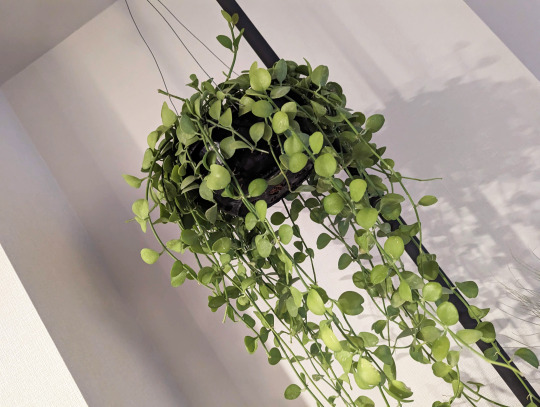
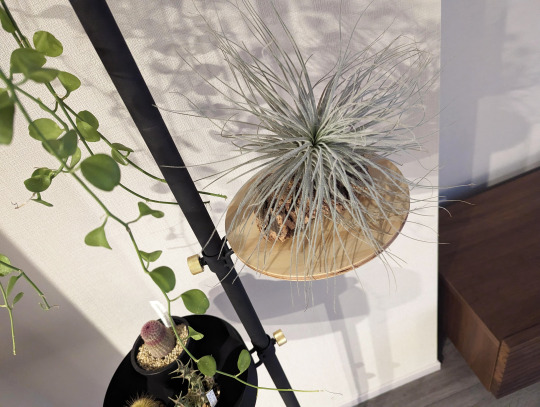


[GW1] Working Log @Tokyo
2 notes
·
View notes
Text
The World's A Spool For Which,

Entropy Will Unravel!
Art Palette
87 notes
·
View notes
Text

#Explaination for why I have posted 0 of my drabble attempts#I refuse to post anything until it gets 100+ reactions#Which can't possibly happen unless I post it#🤷♀️ makes sense to me#writing#writerscommunity#Error Writes#bce#bookcluberror#fanficerror#ffe#creative writing#fan fiction#fan fic writing#fan fic stuff#drafts#first draft#rough draft
0 notes
Text

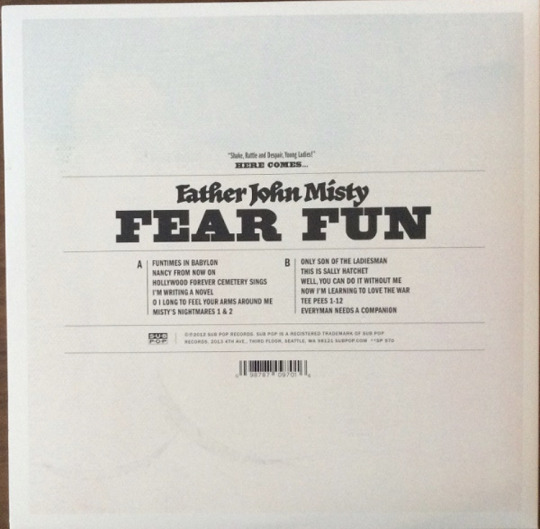
Shake, rattle, and despair young ladies! Here comes... Father John Misty! Happy ten years to Father John Misty's debut album, Fear Fun.
"When discussing ‘Father John Misty’, Tillman paraphrases Philip Roth: ’It’s all of me and none of me, if you can’t see that, you won’t get it’. What I call it is totally arbitrary, but I like the name. You’ve got to have a name. I never got to choose mine.”
He goes on, “‘People who make records are afforded this assumption by the culture that their music is coming from an exclusively personal place, but more often than not what you hear are actually the affectations of an ’alter-ego’ or a cartoon of an emotionally heightened persona,” says Josh Tillman, who has been recording/releasing solo albums since 2003 and who recently left Seattle’s Fleet Foxes after playing drums from 2008-2011. “That kind of emotional quotient isn’t sustainable if your concern is portraying a human-being made up of more than just chest-beating pathos. I see a lot of rampant, sexless, male-fantasy everywhere in the music around me. I didn’t want any alter-egos, any vagaries, fantasy, escapism, any over-wrought sentimentality. I like humor and sex and mischief. So when you think about it, it’s kind of mischievous to write about yourself in a plain-spoken, kind of explicitly obvious way and call it something like ‘Misty’. I mean, I may as well have called it ‘Steve’”.
[Fear Fun] began gestating during what Tillman describes as an “immobilizing period of depression”, in his former Seattle home. “Songwriting for me had always only been interesting and necessary because I saw it as this vehicle for truth, but I had this realization that all I had really done with it was lick my wounds for years and years, and become more and more isolated from people and experiences. I don’t even like wound-licking music, I want to listen to someone rip their arm off and beat themselves with it. I don’t believe that until now I’ve ever put anything at risk in my music. I was hell-bent on putting my preciousness at stake in order to find something worth singing about.” When asked about Laurel Canyon, where he eventually ended up living in the aforementioned tree-house with a family of spiders, Tillman says, “My attitude about it all is pretty explicit in the record. Given my fairly adversarial personal attitude about the music and aesthetic that comes from that place, it’s kind of a huge joke that I live in a former hippie-fantasy land. I have a really morbid sense of humor.”
11 notes
·
View notes
Text
#industry#engineering#Fallingfilmevaporator#FFE#engineering consultancy services#industries#pharma manufacturing
0 notes
Text
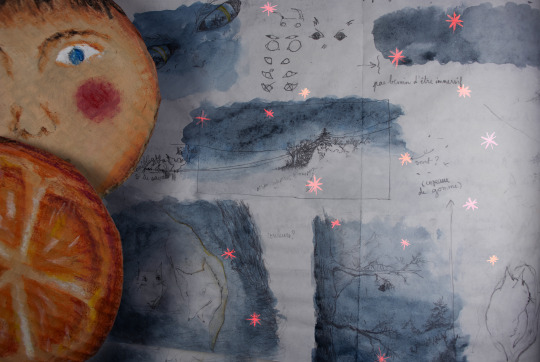
Bonne année !
et belle veillée dans les bois ou ailleurs 🕯
oser s'y aventurer
pour se rejoindre au petit matin
(fond : anciennes recherches pour un film qui va tout bientôt sortir!)
3 notes
·
View notes
